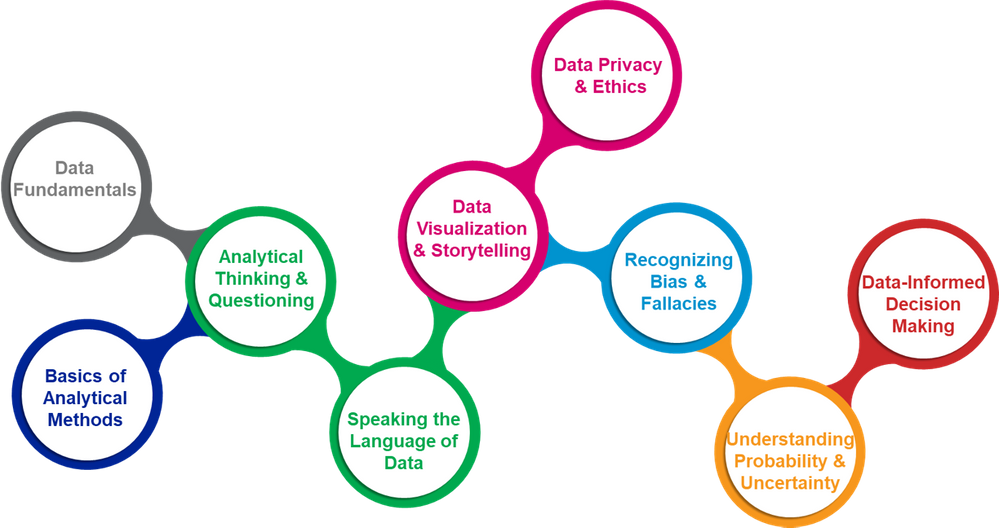Data Literacy ~ Data-Informed Decision-Making
Data-Informed Decision-Making
Examples: Leadership presentations include: key performance metrics; related analysis, visualization and storytelling; roles and moments affected are described and data-driven actions taken; explanation of results, business impact and outcomes achieved. (Gartner, 2019, Toolkit)
Cramer, Little & McHatton (2015) describe a recursive five-step data-based decision-making model: goal identification, data collection, data reflection, identifying areas for improvement, and dissemination.
"DDDM is not just about the numbers or the data. It is about making actionable the data by transforming them into usable knowledge " (Mandinach, 2012)
The knowledge and skills required to use data to help in the decision-making and policy making process. This includes thinking critically when working with data; formulating appropriate business questions; identifying appropriate datasets; deciding on measurement priorities; prioritizing information garnered from data; converting data into actionable information; and weighing the merit and impact of possible solutions and decisions (Statistics Canada, 2020). Also the knowledge and skills required to evaluate a range of data sources and evidence in order to make decisions and take actions. This can include monitoring and evaluating the effectiveness of policies and programs (Statistics Canada, 2020).
Relevant Links
These links are typically articles defining data literacy that include this theme in their definition.
, Canada.ca, 2021;, Statistics Canada, Canada.ca, 2020;, Open Data Institute, 2020;, Alan D. Duncan, Donna Medeiros, Aron Clarke, Sally Parker, Gartner, 2021;, Gartner, 2019;, Learn2Analyze, 2017;, Chantel Ridsdale, et.al., Dalhousie University, 2015;, Databilities, Data to the People, 2020;, Annika Wolff, Daniel Gooch, Jose J. Cavero Montaner, Umar Rashid, Gerd Kortuem, 2016;, Edith Gummer, Ellen B. Mandinach, Teachers College Record, 2015;, Elizabeth D. Cramer, Mary E. Little, Patricia Alvarez McHatton, Action in Teacher Education, 2015;, Gerry Swan, Joan Mazur, Contemporary Issues in Technology and Teacher Education, 2011;, Ellen B. Mandinach, Educational Psychologist, 2012;, Dave Wells, Eckerson Group, 2022;
